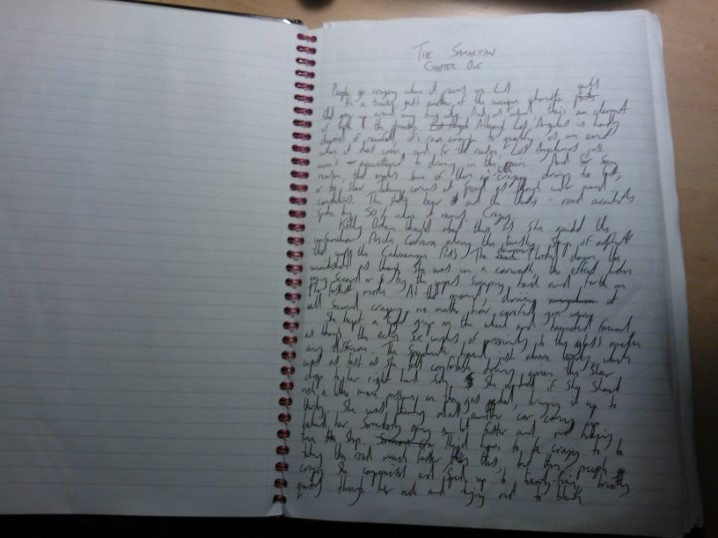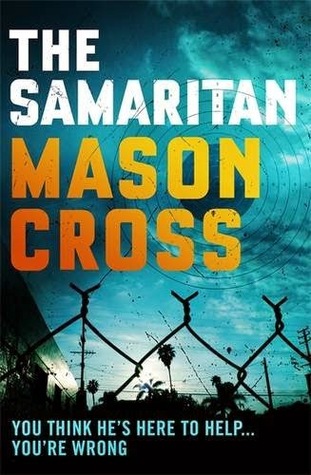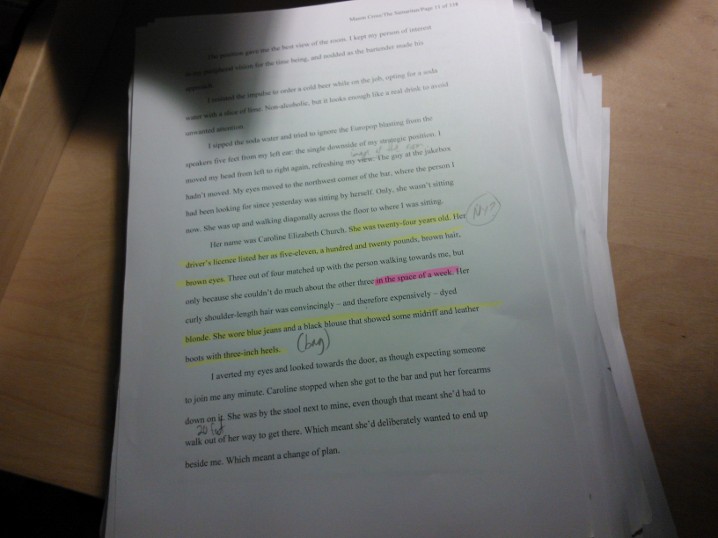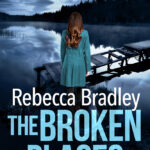Today I have crime author Mason Cross on the blog talking about his first draft process.
 Mason is the author of the Carter Blake thriller series. The first book, The Killing Season, was published by Orion in 2014, and the sequel, The Samaritan is published in the UK on July 16 2015.
Mason is the author of the Carter Blake thriller series. The first book, The Killing Season, was published by Orion in 2014, and the sequel, The Samaritan is published in the UK on July 16 2015.
His short crime stories have been published in magazines including Ellery Queen and First Edition. His story, ‘A Living’, was shortlisted for the Quick Reads ‘Get Britain Reading’ Award.
When you decide to write something new, what is the first thing you do?
The first thing I do is to start noting down all of the ideas I have about the new project and start trying to get a very basic plot outline scribbled down. It’s always interesting looking back once I’ve finished a book to how radically different the finished product is from the first few ideas, but there are always some good scenes or characters or even lines of dialogue that make it through from inception to completion.
Do you have a set routine approaching it?
I’m still fairly new to this, so I’m experimenting with different ways to approach a new book. Having now written four novels, I’m beginning to work out the things to do to make my life easier. The most important thing is to write a rough but reasonably detailed synopsis that gives me the main characters and the key scenes. From experience, that synopsis changes a lot as I write, but it’s important to fool myself into thinking I know what I’m doing.
 Pen and paper or straight to the keyboard?
Pen and paper or straight to the keyboard?
Depends where I am. If I’m out and about when I have an idea, I’ll usually write in a notebook or type some bullet points into the notes app on my phone. As soon as I get near a computer though, I like to transcribe my notes and start to arrange them into a coherent order. There’s one very important reason to do this as soon as possible, and that’s the fact that I have real trouble reading my own handwriting. I think I missed my calling as a doctor.
How important is research to you?
Quite important, because I like to ground my novels in reality as far as possible to balance out the more outlandish thriller-y elements. I don’t overdo research before I start writing, though – a) because it’s a great excuse for procrastination, and b) because the temptation to dump all the research you’ve done into the book is strong. I try to write as much of the book as possible and then research the gaps in my knowledge… which are numerous! The good thing about research is it will often give you a great idea for a new plot twist, or a solution to a story problem you’d been struggling with.
How do you go about researching?
Like most writers these days, I do a lot of Googling. The internet is an incredible resource for lots of things, from the minutiae of firearms to flight schedules to street views from all over planet Earth. I also read factual books and newspaper or magazine articles about topics that are relevant to whatever I’m writing. It’s always good to have visited the place you’re writing about (assuming it exists), but even when you’ve been to a place you can always learn more by reading about it. How do you store everything; ideas, research, images that catch your eye? I always have a few notebooks on the go and try to record ideas and promising-looking research avenues as I find them. Quite often a newspaper article or website will have really useful information, so I email the pages to myself and store them in a (now gigantic) folder called ‘INTERESTING STUFF FOR BOOKS’
Tell us how that first draft takes shape?
I just try to plough ahead, knowing that it isn’t going to be perfect or pretty, but that it’s important to get a first draft to work on. It’s like working on any big project – you have good days and bad days. Sometimes you’ll make a breakthrough and get a lot of words down and they seem to be reasonably good words, other days you’ll be spinning your wheels, wondering if you should just give up on the whole thing. On those days, it’s important just to get some words down, no matter how clumsy, and trust that you’ll be able to fix them later on.
Are there any rituals you have to do or items you must have with you while writing that draft?
No – I just need space and time to write. That’s the challenging part. The main ritual is making sure I get time to write every day, whether it’s last thing at night or during lunch.
Does the outside world exist or are you lost to us for a period of time as the magic works?
Unfortunately I don’t have the luxury of withdrawing from the world as I have a day job and young children, so I have to make the most of the available time. I think being forced to engage with the real world helps, though. You need to know about real life and real people to do the job.
What does your work space look like?
At the moment, I’m a writer without a workspace. The office is going to be redecorated, and so I have to make to with the kitchen table, the couch, or sitting on the floor with my back to the wall. Luckily I’ve never been the sort of writer who needs a perfect environment in which to write.
Edit as you go or just keep getting words out?
Mostly just keep getting the words down. Occasionally, if I have a really bright idea of how to fix an earlier scene I might go back and tweak a little, but mostly it’s about gritting my teeth and focusing on the finish line. I see many writers counting words in a day.
Word counter or other method of keeping track of progression?
Definitely a word counter. I always aim to do at least 500 words a day. Most days I do more than that, but it’s important to have a realistic target that’s not too intimidating. So, that first draft is down. Roughly how long did it take? And what shape is it in? My last couple of books have been written to deadline, so much faster than before I had a book deal. It takes me about 4-5 months to get a rough draft down, but that’s very rough indeed. After that it’s usually another month or two to get it in a good enough shape to send to my publisher. The most recent book is my most ambitious and sprawling to date, and it took a lot more time to whip into shape.
In what format do you like to read it through, e-reader, paper or the computer screen?
The first time I read through I have to print out. For some reason you miss the mistakes more easily on a screen. Later on, I send the document to my Kindle to read over a more polished draft.
What happens now that first draft is done?
Ideally, I take a break for a few weeks and come back to it fresh, but the available time doesn’t always allow that. When I come back to the draft the first thing I do is print it out and go through with a pencil and a notebook and lots of different coloured highlighters working out everything that needs to be fixed. There’s always a lot that needs fixed.
Thanks for digging into the depths of the first draft. It’s been a pleasure having you Mason.
It’s been a pleasure for me too!
You can find Mason on his blog, Goodreads and Twitter.
The Samaritan by Mason Cross
 When the mutilated body of a young woman is discovered in the Santa Monica Mountains, LAPD Detective Jessica Allen knows this isn’t the work of a first-time killer.
When the mutilated body of a young woman is discovered in the Santa Monica Mountains, LAPD Detective Jessica Allen knows this isn’t the work of a first-time killer.
She’s seen this MO before – two and a half years ago on the other side of the country. Allen begins to dig deeper and soon uncovers a terrifying truth. A sadistic serial killer has been operating undetected for the past decade, preying on lone female drivers who have broken down. The press dub the killer ‘the Samaritan’, but with no leads and a killer who leaves no traces, the police investigation quickly grinds to a halt.
That’s when Carter Blake shows up to volunteer his services. He’s a skilled manhunter with an uncanny ability to predict the Samaritan’s next moves. At first, Allen and her colleagues are suspicious. After all, their new ally shares some uncomfortable similarities to the man they’re tracking.
But as the Samaritan takes his slaughter to the next level, Blake is forced to reveal that the similarities between the two men are closer than even Allen suspects. With time running out and an opponent who knows all of his tricks, Blake must find a way to stop the Samaritan …even if it means bringing his own past crashing down on top of him.
You can find all previous First Draft Q&A’s HERE and if you fancy answering them yourself just let me know.




fascinating post, Rebecca. Glad to hear I’m not the only one with a messy first draft!
Reblogged this on Anita & Jaye Dawes.
It is different when writing under a deadline. Or even just pressure from your publisher to produce something else. Like you, I just plow ahead on that first draft.
I really do enjoy this feature – thanks, Rebecca.
Mason – Thanks for sharing how you go about doing that first draft. I know exactly what you mean about the internet, too – it’s a treasure trove! I find it incredibly valuable as I look up things when I write.
Thanks guys – really enjoyed actually thinking about this and realising that maybe I do have a ‘process’ after all!
Right here is the right site for anyone who would like to understand this
topic. You realize so much its almost hard to argue with you (not that I actually would want to…HaHa).
You certainly put a brand new spin on a subject which has been written about for a long time.
Excellent stuff, just excellent!